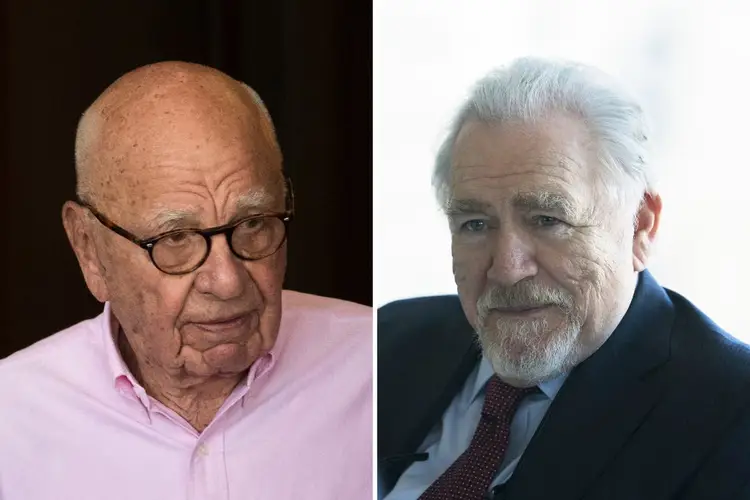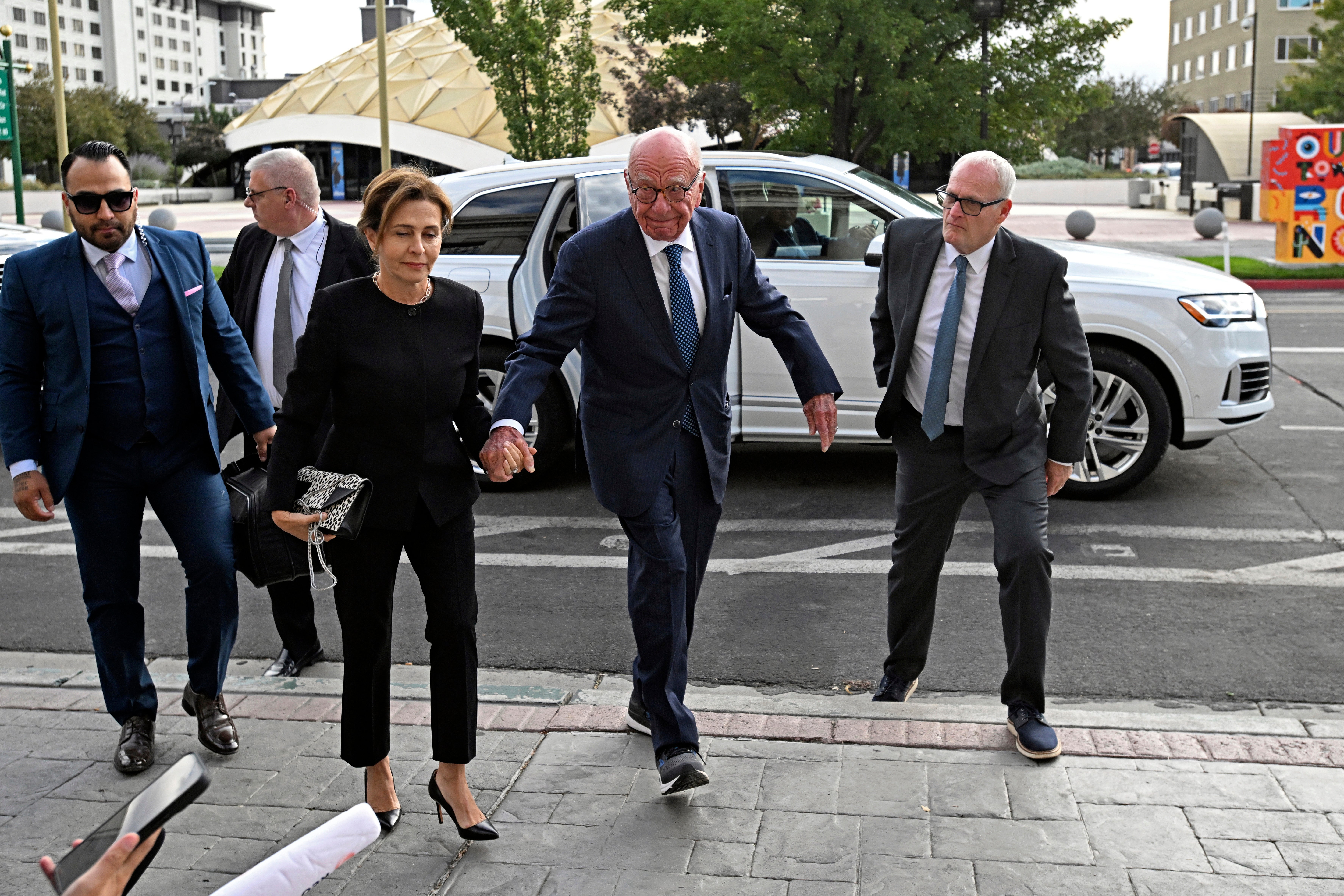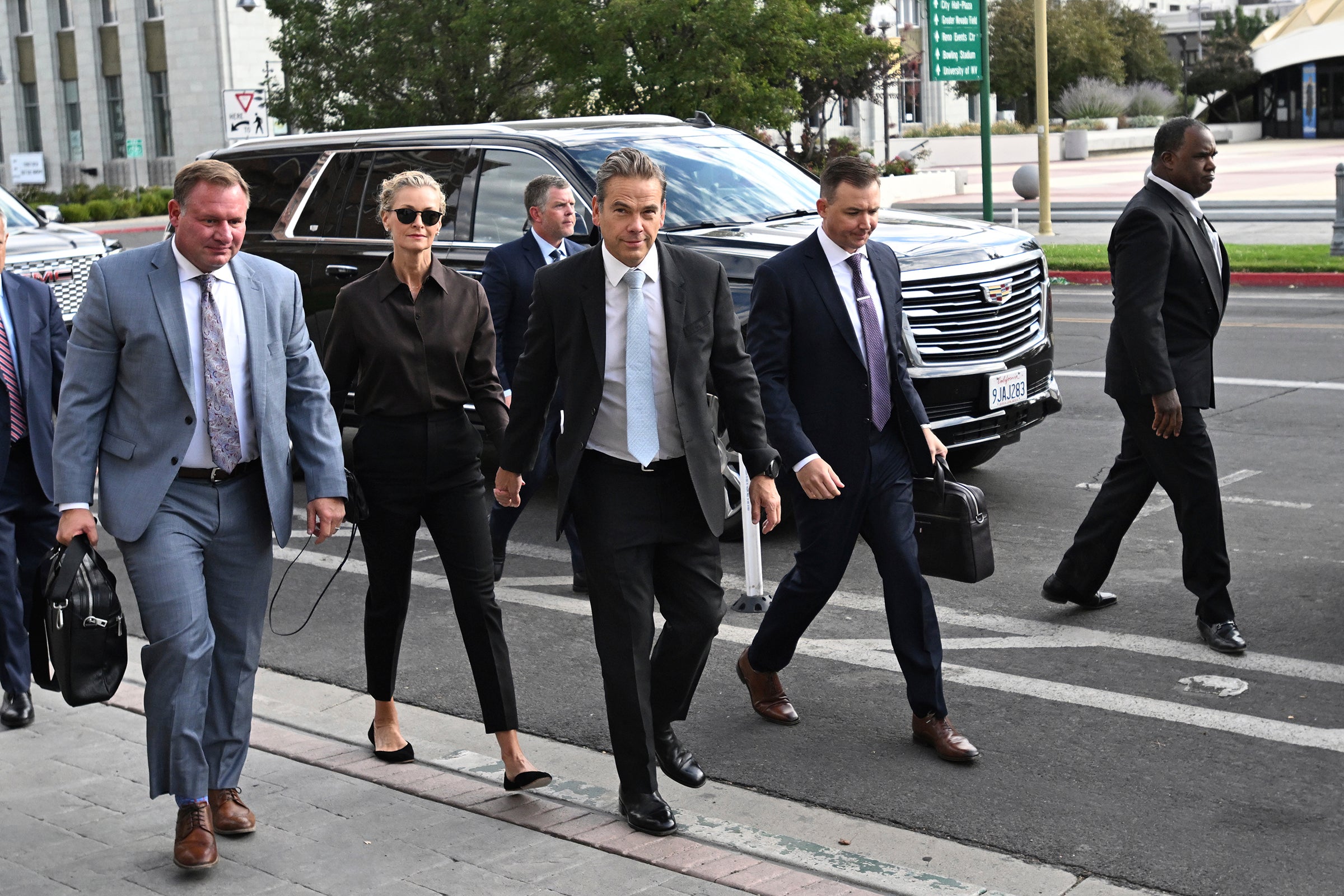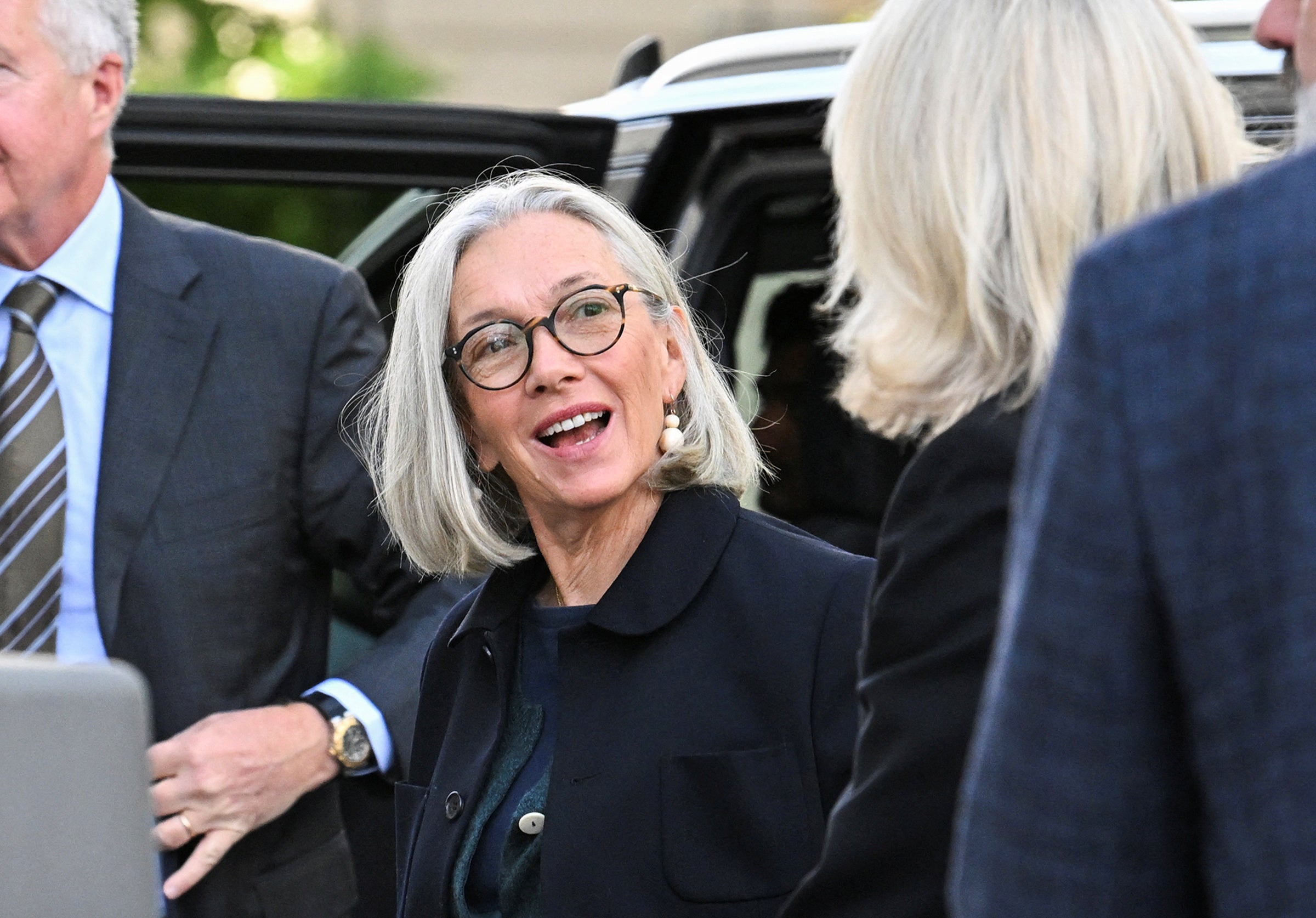How an episode of Succession sparked Rupert Murdoch’s bitter family feud

Sign Up For Free Real-Time News Alerts!
Subscribe For Free Breaking News Updates
Subscribe For Free Breaking News Alerts
I’d love to receive emails regarding promotions, events, and news from The Independent. Please take a look at our privacy policy.

Last year, life mirrored fiction for the Murdoch family when a scene from HBO's Succession sparked a genuine reflection on what lies ahead for Rupert Murdoch's media empire.
The popular drama, which concludes with a conservative media mogul's family dealing with the aftermath of his passing, is said to have encouraged Murdoch’s kids to rethink their father’s succession strategy.
During private testimony given in Reno, Nevada, in September, Murdoch and his four oldest children—Lachlan, James, Elisabeth, and Prudence—talked about how the event led to numerous private discussions.
Court documents reviewed by The New York Times reveal that the children started planning a public-relations approach for their father's future passing after witnessing the chaotic representation of a media empire unraveling in a fictional story about Logan Roy.

The event prompted Mark Devereux, who represents the family trust for Elisabeth Murdoch, to create a memo titled “Succession.” This document was intended to prevent the kind of conflicts showcased in the show from spilling into their real lives, but it ultimately sparked a fierce family dispute.
At 93 years old, Murdoch aimed to solidify his oldest son Lachlan's position at the top of the family business by modifying the Murdoch Family Trust, enabling him to have “permanent” and “exclusive” authority. This trust consists of eight voting shares—four are held by Murdoch himself, while the remaining four are evenly distributed among his oldest children. The original structure of the trust was intended to provide an equal distribution of control following the patriarch's passing.
Despite Murdoch's attempts to reallocate voting rights from his more centrist children—James, Elisabeth, and Prudence—he faced a legal hurdle. Nevada commissioner Edmund J. Gorman Jr. intervened, preventing the changes and labeling them as a “well-orchestrated illusion.” He also claimed that Murdoch was acting in “bad faith.”

Adam Streisand, the attorney representing Mr. Murdoch, stated that they plan to challenge the ruling made by the Nevada court.
The disagreement is thought to not be about money or inheritance, since Mr. Murdoch's intentions wouldn’t lessen the wealth his children would receive. Rather, the changes he suggested aimed to take voting control from his more liberal children, which many interpret as a move to maintain a right-leaning agenda within the family's significant media assets.
The ongoing lawsuit highlights increasing discord among the Murdoch family regarding the future of their vast media empire, which has a global reach and comprises influential platforms like The Wall Street Journal and Fox News. The court's ruling is a major disappointment for Mr. Murdoch's plans for a future led by Lachlan, bringing into question the long-term solidarity of the family legacy.

The future of Murdoch's extensive media conglomerate, which encompasses Fox News, The Wall Street Journal, and various UK publications like The Sun and The Times, has fascinated the public in recent years. This unfolding story has even influenced the creation of a popular television series.
When Murdoch revealed his retirement last September, it seemed he had finally addressed the ongoing issue of who would take over by appointing his eldest son, Lachlan, as the chairman of News Corp and the CEO of Fox Corp. However, Murdoch's attempts to solidify Lachlan's role—preventing his other children from contesting his power—have led to an intense legal dispute.
Murdoch's youngest daughters, Chloe and Grace, do not have the ability to vote but they possess the same ownership shares in the trust.
In their statement, James, Elisabeth, and Prudence expressed their approval of the ruling, sharing their optimism that it would enable the family to concentrate on "enhancing and restoring relationships." Their relatively moderate political views sharply contrast with the more right-wing positions held by their father and Lachlan, leading to speculation that the family's media empire might take a different editorial direction if control is divided.

Documents acquired by The New York Times indicate that Murdoch expressed concerns that disagreements among his heirs might result in changes to the editorial direction and content of the company, which could weaken the conservative values that have characterized it.
Even though Murdoch had certain plans, the ongoing legal dispute has widened the rifts in the family. James Murdoch, who was seen as a potential successor, has had ongoing disagreements with Lachlan on political matters. Their professional relationship deteriorated during Donald Trump’s time in office when James expressed worries about Fox News's positive portrayal of Trump. Ultimately, he stepped down from the News Corp board in 2020, citing differences in editorial opinions.
Murdoch, with an estimated fortune of $17 billion (£13.8 billion) as reported by Forbes, dedicated 70 years to creating his worldwide media empire. Yet, his retirement hasn’t quelled the ongoing family turmoil. Although Lachlan has been positioned as his preferred successor, the struggle to modify the trust has attracted public attention and widened divides among his children.

Currently, the court's ruling represents a major blow to Murdoch's ambitions. This result allows his more centrist children to shape the future course of the empire, possibly leading it away from its strongly conservative foundations.
The Independent has reached out to Rupert Murdoch for his response.

























































